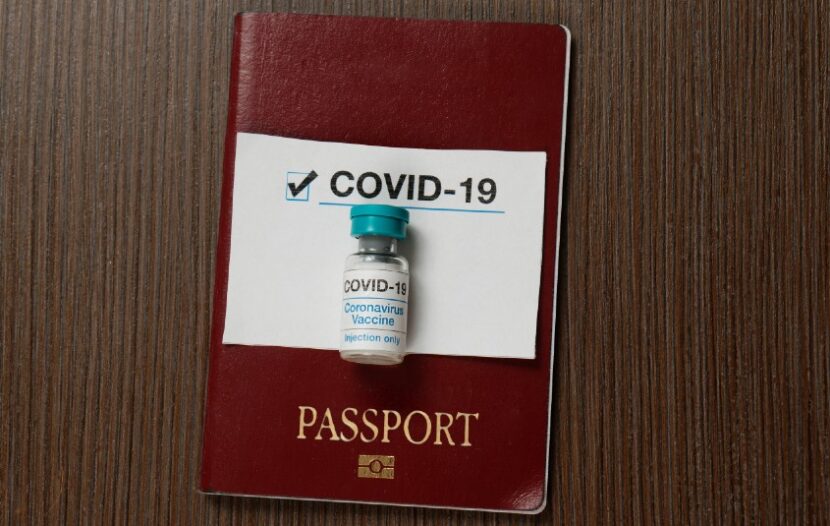The poll results come as talk about vaccination passports continues here in Canada
TORONTO — According to the latest poll from the Global Business Travel Association (GBTA), 66% of GBTA members and stakeholders say implementing digital health verification amid the pandemic (also known as vaccination passports, or digital green certificates) is good policy.
The majority also believe it will help employees safely resume business travel.
GBTA also says it’s seeing a positive increase in optimism among members as the vaccine rollout ramps up globally and the benefits of a vaccine start to take hold.
The poll was the 17th from GBTA since the start of the pandemic.
The GBTA said respondents from Europe were more likely (72%) than those from North America (63%) to say issuing Digital Health Verification is a good policy. Most feel it will help employees safely resume business travel (77%) and is a quick and easy way to document people have been vaccinated (64%).
Among those who feel Digital Health Verification is a bad policy, reasons centred largely on privacy concerns (73%).
On March 17 the European Commission laid out its proposal for issuing certificates that would allow EU residents to travel freely across the 27-nation bloc by summer 2021, as long as they have been vaccinated, tested negative for COVID-19 or have recovered from the disease.
WHAT’S BEING SAID HERE IN CANADA
The findings come amid ongoing discussion in Canada about vaccination passports.
On March 12, asked about Canada’s stance on vaccination passports, Prime Minister Justin Trudeau said: “This is something countries are actively exploring. And we are among those countries.” When it comes to certification of vaccinations for international travel, “that’s something that has existed for a long time,” added Trudeau. “This is a well-established practice.”
Health Minister Patty Hajdu, who told CTV recently that discussions about vaccination passports are “very live” among the G7 countries, told OrilliaMatters.com that Canada needs to be part of those discussions, so that Canada can be prepared.
Meanwhile an opinion piece in the Globe and Mail this week said a vaccination passport program would be “an unfair waste of time.”
Although Trudeau has been careful to distinguish between the use of vaccination passports for international travel versus domestic, everyday activities, others have not been so careful and that is blurring the line between a measure many see as reasonable and not without precedent for international travel, and proof of vaccination for use domestically that gives rise to more concerns.
MORE POLL RESULTS FROM THE GBTA
Here are more findings from the GBTA poll ..
- Half (52%) of suppliers and travel management companies are more optimistic than last month about the industry’s path to recovery, compared to four in 10 (44%) who feel the same as they did last month.
- Two-in-five (40%) report their bookings from corporate customers have increased from the previous poll, an increase of 21 percentage points from the February 2021 GBTA poll. Half (48%) of suppliers characterize their bookings from corporate customers as the same, with no change. Only one in ten report their bookings have decreased (7%) or are unsure (6%).
- A majority of GBTA members and stakeholders (84%) say they would be “very comfortable” or “comfortable” travelling for business after receiving the Covid-19 vaccination. Another one in 10 (10%) are neutral or would be uncomfortable traveling for business (6%).
- GBTA members and stakeholders largely expect non-essential domestic business travel to resume in the second half of 2021. International non-essential business travel is expected to take longer and is not expected to largely resume until 2022.
- Almost all (92%) respondents expect to return to the office by the end of the year. GBTA members and stakeholders vary in terms of their expectations, as only seven percent report their workers are already in the office and one-in-ten (13%) expect workers to return to the office in the next 1-3 months. The biggest majority, four in ten (38%) anticipate workers returning to the office in the next 4-6 months. Just 8% expect workers will return to the office in more than 12 months
- Three-quarters (77%) GBTA members and stakeholders expect employees will commute to the officeless frequently (once it opens) than they did before the pandemic. This compares to one-in-ten (12%) who expect employees will come into the office the same number of days as they did before the pandemic.
- Among those who expect employees will spend fewer days in the office (if not entirely remote), expectations for the resumption of domestic business travel vary as the recovery evolves. Six in ten (61%) expect there will be less domestic business travel during this time, while one in four (27%) expect the same amount of domestic business travel. Less than one in ten expect more domestic business travel (6%) or do not know (6%).
- Half (49%) of GBTA members and stakeholders cite government policies that restrict travel or make it difficult (e.g., entry restrictions or mandatory quarantines) as the greatest barrier to business travel. One in four (25%) cite company policies and one in ten cite employee unwillingness/reluctance to travel (11%) or travel budget freeze/cost (10%).
- Respondents in Europe (68%) are more likely than those in North America (43%) to say government policies are the largest barrier to business travel.
“As momentum for the Digital Health Verification gathers pace, so does optimism for a safe return to business travel,” said Suzanne Neufang, CEO, GBTA.
“We are continuing our advocacy efforts in Washington, Brussels and London to lobby for a consistent approach to re-open borders and safely allow business travel to resume. It is encouraging to see GBTA members feeling comfortable to travel after receiving the vaccine, and that the global vaccine roll-out continues to accelerate,” said Neufang.

